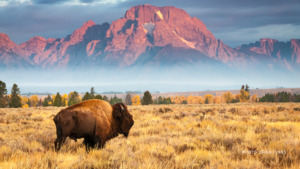Erik Molvar is a contributing writer for The Hill, a Washington-based policy news outlet. He served as managing editor for 50 Years of American Wilderness, published as part of the interagency Wilderness 50th Anniversary celebration. Molvar is author of 15 books on western public lands, including Wyoming’s Red Desert: A Photographic Journey, and has contributed writing and photography to several others. He is a wildlife biologist and serves as the Executive Director for Western Watersheds Project.
How to turn our energy future from a dystopian nightmare to a sustainable solution The Hill, 27 Dec. 2021
How best to conserve public and private lands under the 30 x 30 Initiative The Hill, 26 May 2021
Trump administration calls wild horses biggest threat to public lands — here are the real threats ~ The Hill, 10/12/19
Cows, carbon and climate change ~ 8/3/19
How sheep ranching spreads disease ~ 5/13/19
Putting America’s gray wolves back in the crosshairs 3/16/19
Ryan Zinke was no Theodore Roosevelt ~ 12/17/18
Congress can’t give ranchers a pass when they abuse national park access 10/2/18
Yellowstone’s recovery: Lessons for the West 9/23/18
American wildlife need responsible public land drilling to be more profitable than cutting corners 5/5/18
Livestock grazing on federal public lands is a privilege — not a right 4/22/18
The sad truth of using public lands for cattle grazing 3/30/18
Bundy mistrial highlights federal failures to bring criminals to justice 12/26/17
Don’t speak for Westerners when exploiting public land 9/21/17
Court smacks down Wyoming efforts to suppress science 9/9/2017
Ranchers and politics are killing Oregon’s endangered wolves 9/2/2017
The president can make monuments — but he can’t take them away 8/28/17
It’s time for the ag industry to end its war on native wildlife 7/26/2017
Why removing Yellowstone grizzlies from endangered species list is wrong 7/6/2017
Oregon’s Klamath Tribe shows stewardship with water call, The Hill, May 10, 2017
Trump’s Interior candidates would play Russian roulette with West 12/1/2016
Bundys win in federal court, lose in court of public opinion 10/29/2016
The feds’ sage grouse sleight-of-hand 10/04/2016
At Standing Rock, a wake-up call on fossil fuels 09/29/2016
A tale of two wildlife refuges 04/07/2016
Attacking the special-interest loopholes in federal sage grouse plans 03/14/2016
Salmon benefit as road scars heal 02/26/2016
Utah’s public lands ‘grand bargain’ falls on its face 02/11/2016
4 lessons from the Bundys’ Oregon misadventure 02/02/2016
12 steps to climate sobriety 12/17/2015
We can live cleaner and greener 12/07/2015
Keep publicly owned fossil fuel deposits in the ground 11/13/2015
Federal sage grouse plans abandon scientific integrity 10/08/2015
Don’t export America’s climate impacts 09/16/2015
What America thinks about sage grouse conservation 08/26/2015
Federal plans pave the way to a sage grouse listing 07/13/2015
California and Nevada sage grouse protections disappear into hot air 05/07/2015
How the West was lost? 04/20/2015
Oil industry tries to prove science is unscientific 04/10/2015
Corporate crimes against nature 03/20/2015
Energy policy insanity, from both sides 02/11/2015
No excuses left for delaying Keystone pipeline construction 01/20/2015
Is Keystone about energy security or naked greed? 01/16/2015
Anti-fracking fringe 12/16/2014
Gunnison sage-grouse gets a measure of federal protection 12/08/2014
Fracking loses an election deep in the heart of Texas 11/20/2014
What a Republican Senate means for the environment 11/12/2014
In the desert, a wilderness gathering 10/30/2014






